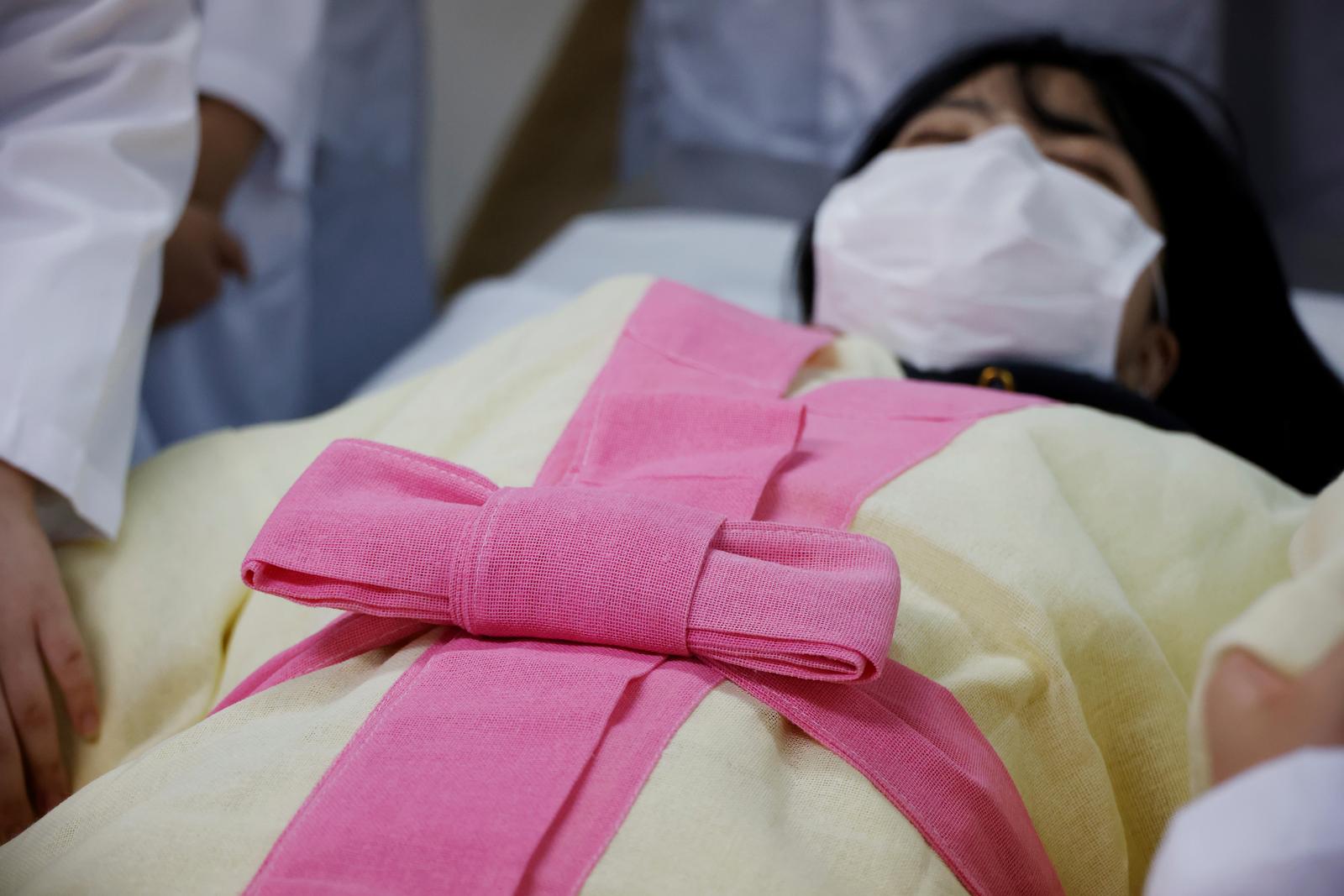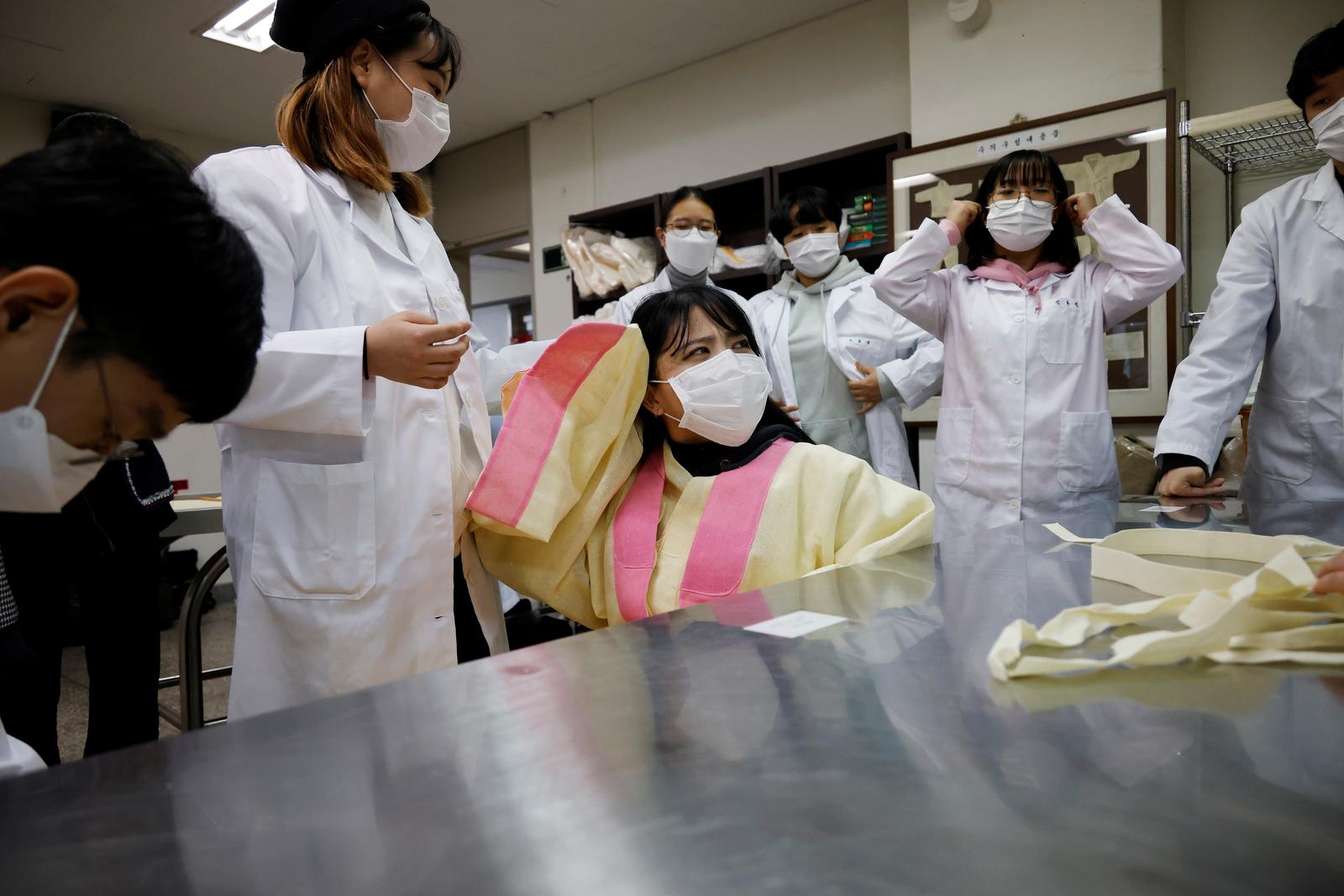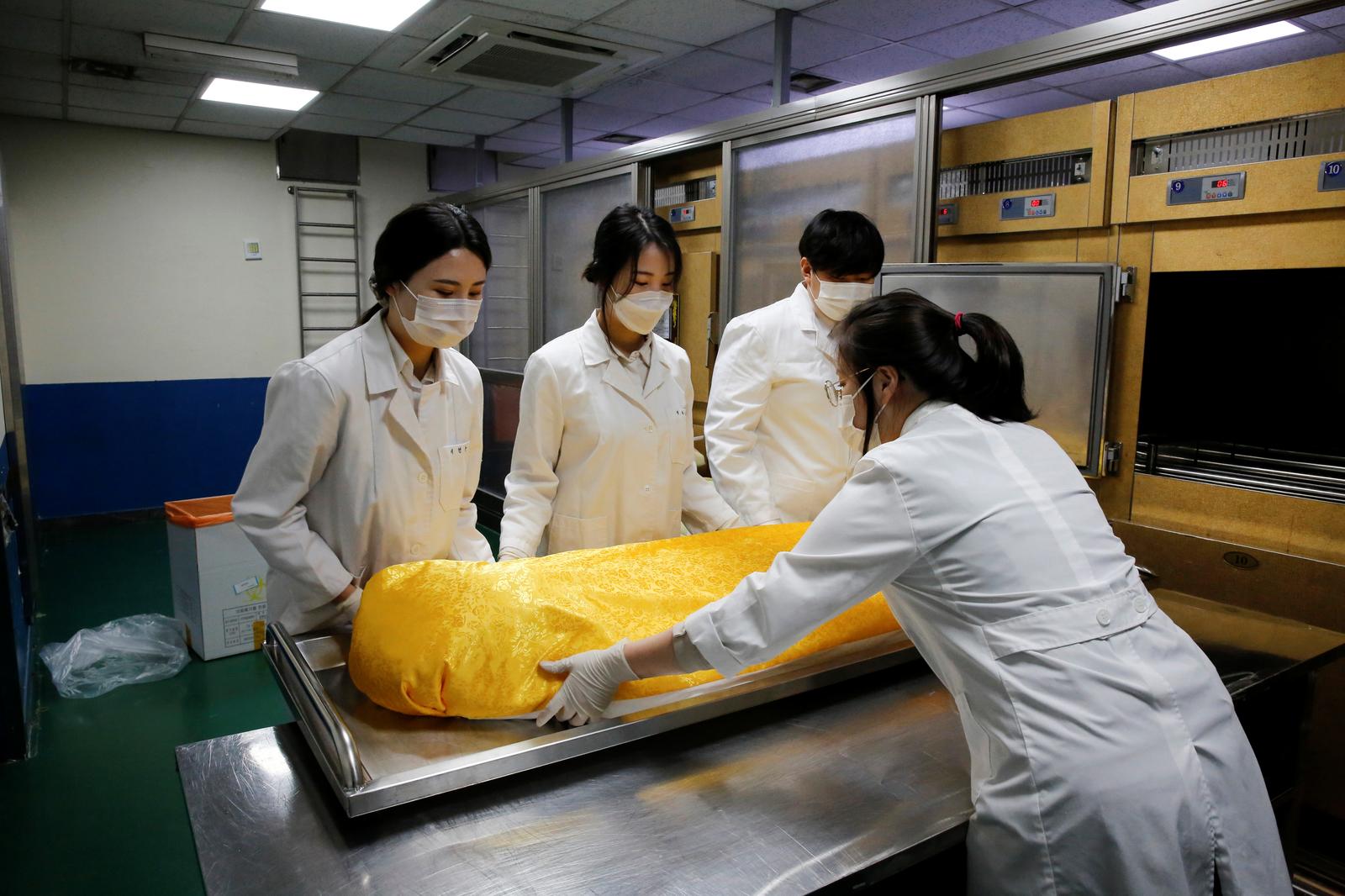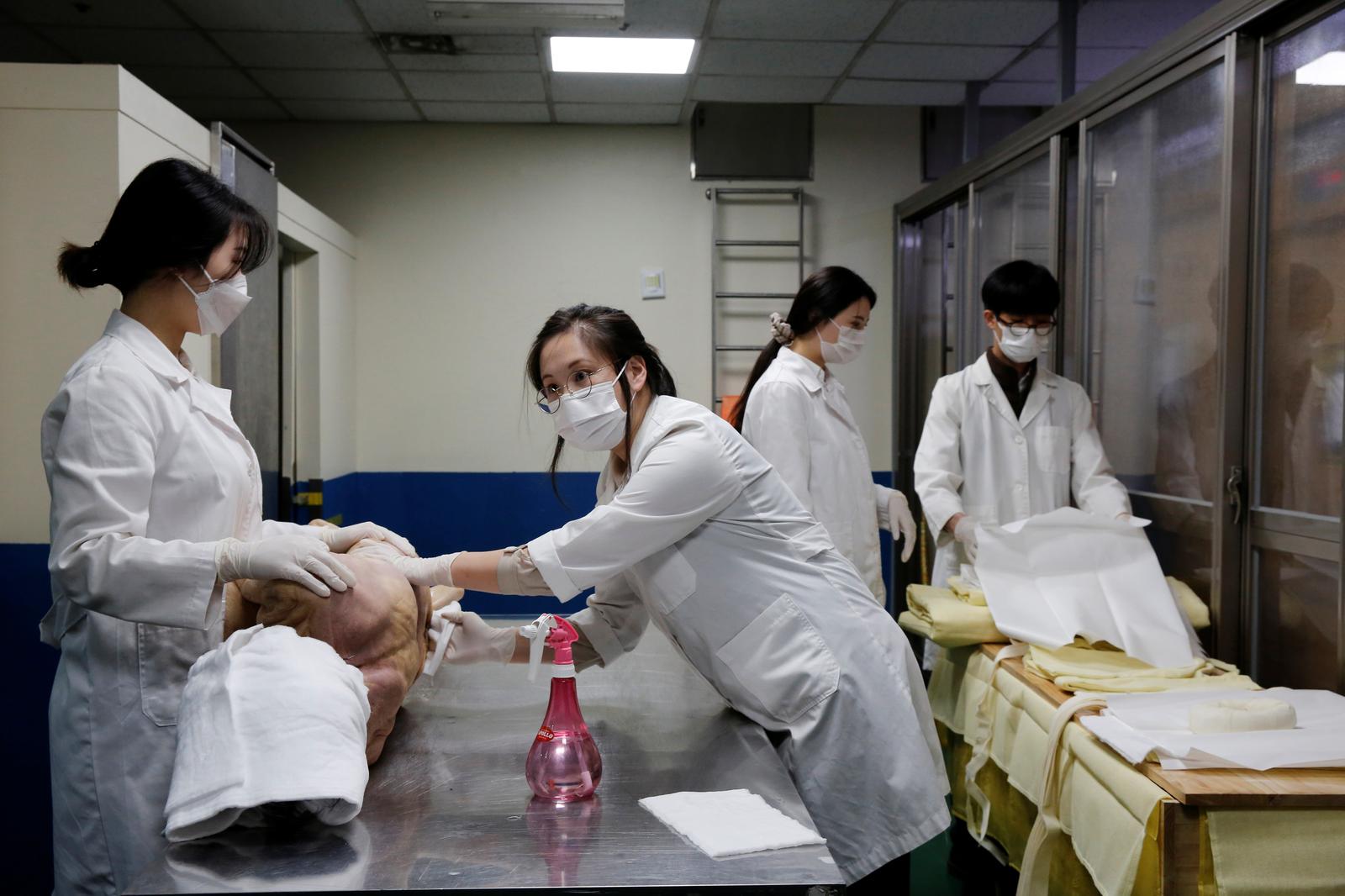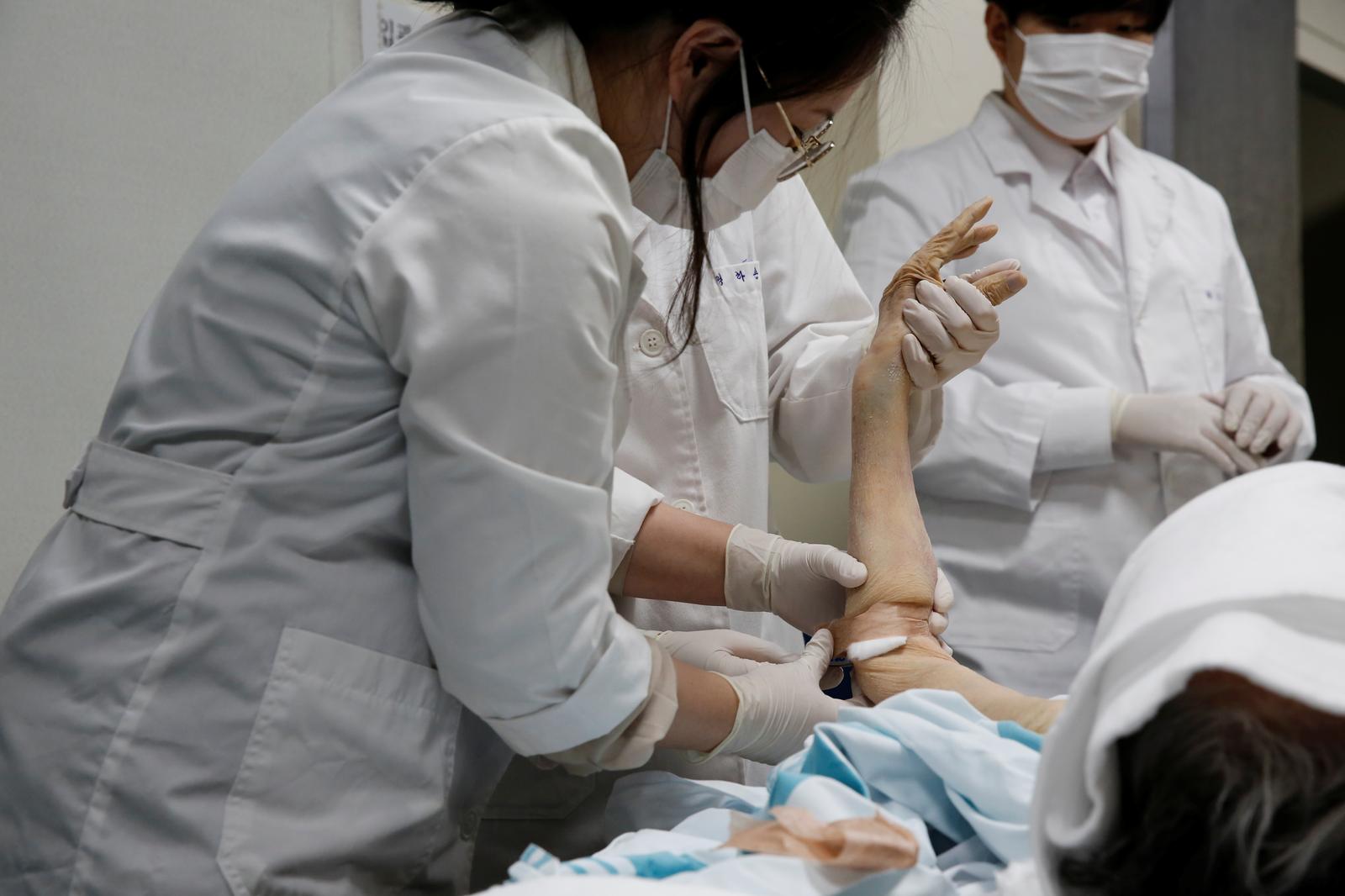SEOUL — A growing number of South Korean women are training to be morticians, a field from which they had long been excluded, amid changing views on gender roles and a rising preference for women’s bodies to be handled by women.
With recent deaths of female celebrities and prominent figures, as well as growing scrutiny of sex crimes against women, gender sensitivity is changing the way families of the deceased bid farewell to their grandmothers, mothers and daughters.
“I felt uncomfortable when my classmates of a different sex touched my body, even when I was fully dressed,” said Park Se-jung, 19, who is in her second year of funeral directing studies.
“I sure wouldn’t want them to touch, wash and dress my naked body even if I were dead. I am determined I should be the one bidding those women a proper farewell.”
The trend comes amid growing calls for crackdowns of sexual violence against women, including a rash of hidden-camera crimes, “revenge porn”, and online networks that blackmailed women and girls into sharing sexual and sometimes violent images of themselves.
|
|
| Park Se-jung who majors the funeral directing at Eulji University, reacts after a class, in Seongnam, South Korea, November 2, 2020. Picture taken November 2, 2020. Photo: Reuters |
In the early 2000s, about a third of mortician students in the country were women, but today they make up around 60% of the class, said Lee Jong-woo, a professor of embalming at Eulji University in Seongnam near Seoul.
“With Confucian ideology, death was considered a taboo in South Korea in the past, and had negative perceptions of whether women could handle such work, but the perception has been changing,” Lee said.
Young deaths
Funeral companies say they have been receiving more requests for female morticians.
“Most of the deaths of young people are suicides, and the families of the bereaved, especially if it was suicide and a woman, feel more comfortable if we handle the body,” said Park Bo-ram, a funeral director of seven years.
“I recall a teenaged student, an only child ... had committed suicide,” Park said.
“Washing and dressing the body, I saw many signs of self-injury on her thigh, but none of her family knew.”
|
|
| Park Bo-ram, a funeral director, moves the body of a deceased at a funeral home in a medical center in Seoul, South Korea, November 4, 2020. Photo: Reuters |
Park recalls that the girl’s parents were immensely grateful, even in the midst of sadness, that a female mortician handled their daughter’s body.
South Korea’s suicide rate is the highest in the developed world: 24.6 deaths per 100,000 people in 2019, compared with an OECD average of 11.3.
That year, it was the No. 1 cause of death among teenagers and people in their 20s and 30s.
More than 4,000 women committed suicide in 2019, including young female K-pop artists Koo Hara and Sulli.
|
|
| Park Bo-ram, a funeral director, cleans the body of a deceased at a funeral home in a medical center in Seoul, South Korea, November 4, 2020. Photo: Reuters |
In 2016, a quarter of the country’s 6,200 funeral directors were women, and with more than 130,000 girls and women dying each year, requests for female funeral directors are expected to rise further, Korea Employment Information Service said.
Yet some resistance to women in the mortuary business remains.
Shin Hwa-jin, 21, who plans to work at a funeral home after graduation, said she was shocked to hear a female mortician relate a conversation with her mother-in-law.
“Her mother-in-law asked her: ‘How dare you think of cooking my meals with the hands that touched a dead body?’” she said.
|
|
| Park Bo-ram, a funeral director, cleans the body of a deceased at a funeral home in a medical center in Seoul, South Korea, November 4, 2020. Photo: Reuters |



